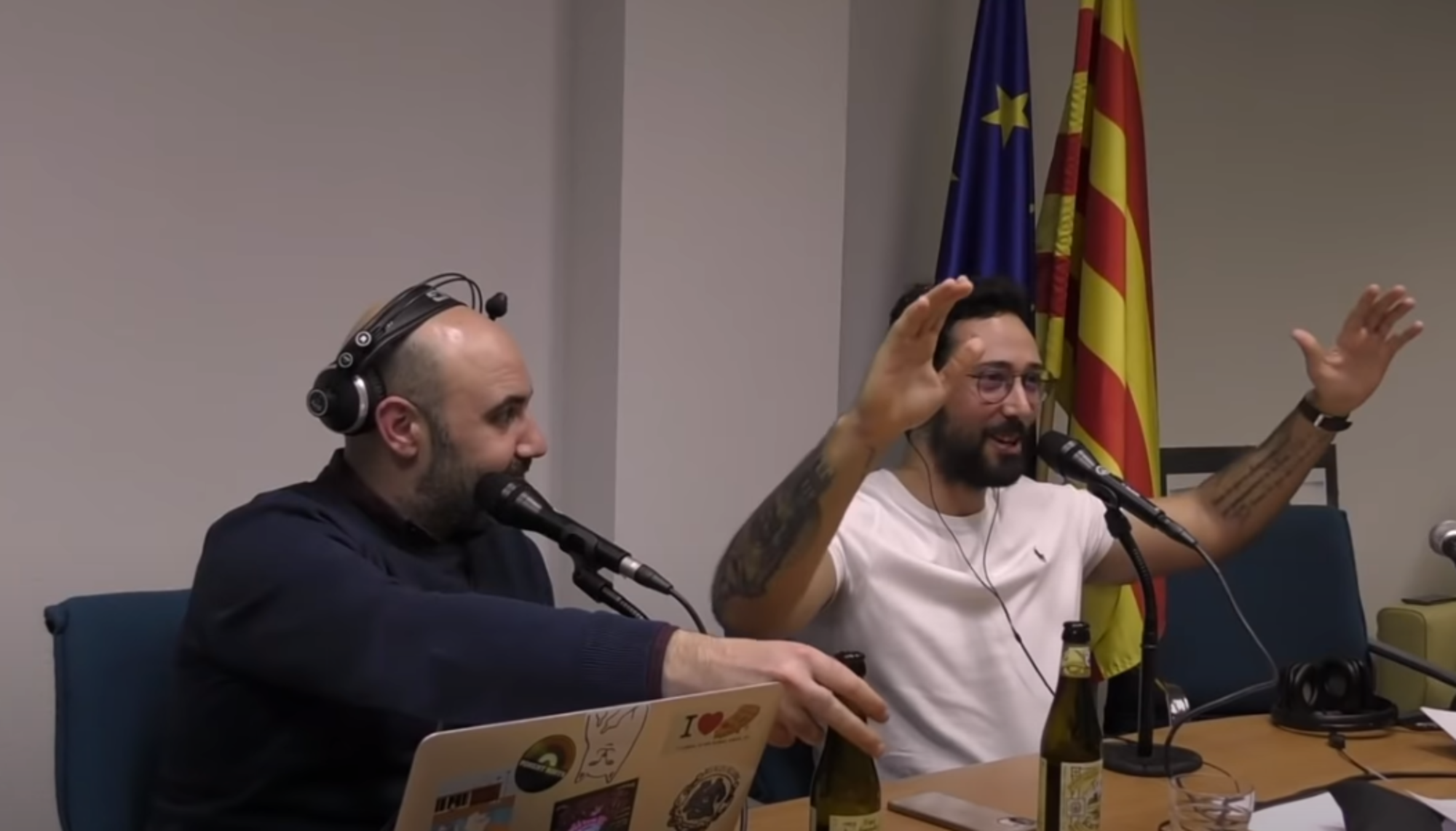It is almost four years since the rapper Valtònyc went into exile in Belgium, but up till now he had never revealed many of the details on how he left the Spanish state and arrived in Brussels. Today, he told some of the story in an interview with the podcast La Sotana, which travelled to Belgium to interview the rapper at the headquarters of the Catalan exile body, the Council for the Republic. Among the audience was Catalonia's former education minister Clara Ponsatí, who also went into exile in 2017. In the interview, the musician from the Balearic Island of Mallorca explains what he did to keep the Spanish police and the Civil Guard guessing when they sought to arrest him in May 2018. A year earlier, in February 2017, Spain's National Audience court had sentenced the rapper, real name Josep Miquel Arenas, to three and a half years' imprisonment for glorifying terrorism and its perpetrators and humiliating its victims, making a death threat against a person and for insulting royalty in the lyrics of his songs.
The full podcast of Valtònyc's tale (in Catalan)
The rapper began his story by saying that the victory he celebrated most was "fleeing Spain, being able to get here and not having to go to prison on the day he had to enter". "I didn't want to go to jail for a single day," said Valtònyc, who compared notes with his fellow rapper, Pablo Hasél from the city of Lleida, also sentenced to prison for similar offences related to his lyrics. "I thought: if he's willing to go, why should we both go? You go to jail and I'll explain it from the outside," he told the podcasters with a laugh. At that point, Arenas embarked on the tale of how events unfolded on the day he had to go into exile, although without detailing how exactly he left the Spanish state, because he was helped by many people, in his words, "and I don't want to compromise anyone. "
A plot worthy of Hollywood
"What I can tell you is that the Spanish Civil Guard and the National Police sent the arrest warrant to Mallorca because they thought I was there. How they got that impression was that I got on a plane. I checked everything in and I boarded the plane, and when I saw that everyone had buckled up their seatbelts, I told the flight attendant that I had left my wallet behind and that I had to get off. I got off the plane and I left. It was recorded that I was on the plane. And they sent the arrest warrant to Mallorca and they searched all my houses." At this point, the podcast presenters, Andreu Juanola, Manel Vidal, Joel Díaz and Magí Camps expressed surprised at the multiple "houses" of the rapper, which Valtònyc justified by the fact that "I had moved apartments several times and the addresses were still registered... Bureaucracy is slow, and they went to all the places where I'd been a tenant. No-one I live with owns a fucking property."
The plane that the rapper was supposed to have taken, but didn't, flew out of Barcelona, but he stayed behind. "What happened is that the Civil Guard and the National Police say, this guy is in Mallorca, this guy has not left and they send all my details - name, ID number, photo - to the airlines and ferry companies and they say, don't let this guy leave as there is an arrest warrant out for him. And the media are so stupid that they publish all my details, including my ID number, and I think I have a chance, so I ask people if they'd mind buying tickets for me since they have all mys details. So, people buy thirty tickets, they bill them, and the Civil Guard goes crazy." The podcast hosts all react in the same way: "This sounds like a movie!"
Beyond that, Josep Arenas did not want to give further details of his exile, only that he arrived in Brussels overland.
So, what are you doing in Belgium?
The rapper also explained his current situation: "I can't travel around Europe because when I was 18 my passport was revoked. My trial began in 2012. The National Audience withdrew my documentation then and banned me from leaving Spain". Valtònyc joked about the digital identity created by the Council for the Republic, regretting that it can't yet be used for travel. About his life in Belgium, he explained jokingly that he "lives from giving the finger to the fascists" but that he works as a computer programmer, freelancing in different places, including the Council and at a publishing house. "When I came to Belgium I had the opportunity to work in IT and I study programming," he said.

